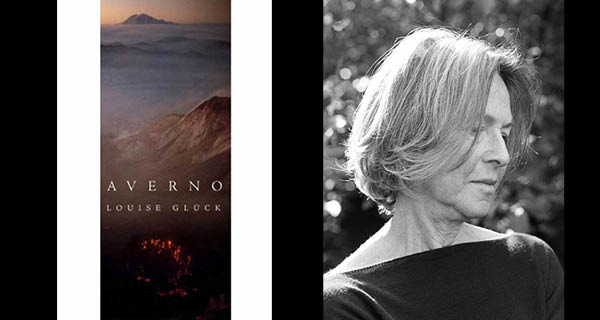
Reading the news that Louise Glück won the Nobel Prize this morning was the first time in a long, long time that reading the news made me smile. I wish I had time to write a winding, beautiful tribute to her; she is one of my very favorite poets. But for now, here is a fragment.
Every October, I think of Glück’s long poem “October,” which begins the award-winning Averno. It was also published on its own as a chapbook. I once had a teacher (the wonderful Jim Seay) who forbid his college poetry students to write about “fall leaves” or “spring flowers” because writing about these changes of seasons, the death of fall, the birth in spring, often (or inevitably) leads to cliche. “October” shows us what a master can do when she writes about autumn. The poem’s first stanza unfolds in what feels like one astounding, long sentence:
Is it winter again, is it cold again,
didn’t Frank just slip on the ice,
didn’t he heal, weren’t the spring seeds planted
didn’t the night end,
didn’t the melting ice
flood the narrow gutters
wasn’t my body
rescued, wasn’t it safe
didn’t the scar form, invisible
above the injury
terror and cold,
didn’t they just end, wasn’t the back garden
harrowed and planted–
I remember how the earth felt, red and dense,
in stiff rows, weren’t the seeds planted,
didn’t vines climb the south wall
I can’t hear your voice
for the wind’s cries, whistling over the bare ground
I no longer care
what sound it makes
when I was silenced, when did it first seem
pointless to describe that sound
what it sounds like can’t change what it is–
didn’t the night end, wasn’t the earth
safe when it was planted
didn’t we plant the seeds,
weren’t we necessary to the earth,
the wines, were they harvested?
Every fall, her words echo in my brain: “Is it winter again, is it cold again, didn’t Frank just slip on the ice?” And from later in the poem: “This is the light of autumn, not the light of spring. / The light of autumn: you will not be spared.”
Damn. And later in that section:
You will not be spared, nor will what you love be spared.
Averno uses the myth of Persephone throughout the book; Persephone feels at times like the speaker, but she is also written about. One of my favorites is this almost laugh-aloud passage:
Persephone is having sex in hell.
Unlike the rest of us, she doesn’t know
what winter is, only that
she is what causes it.
What I love about “October” is what I love about much of Glück’s work: how it can weave the personal, the natural, the mythical, and the flat-out banal into poetry:
My friend the earth is bitter…
I think we must give up
turning to her for affirmation.
or
I was young here. Riding
the subway with my small book
as though to defend myself against
this same world:
you are not alone,
the poem said,
in the dark tunnel.
October, the dark tunnel in the darkest tunnel of years. Order the chapbook October here. And congratulations, Louise Glück.
Read the original post, and more, on Kim O'Connor's blog.

